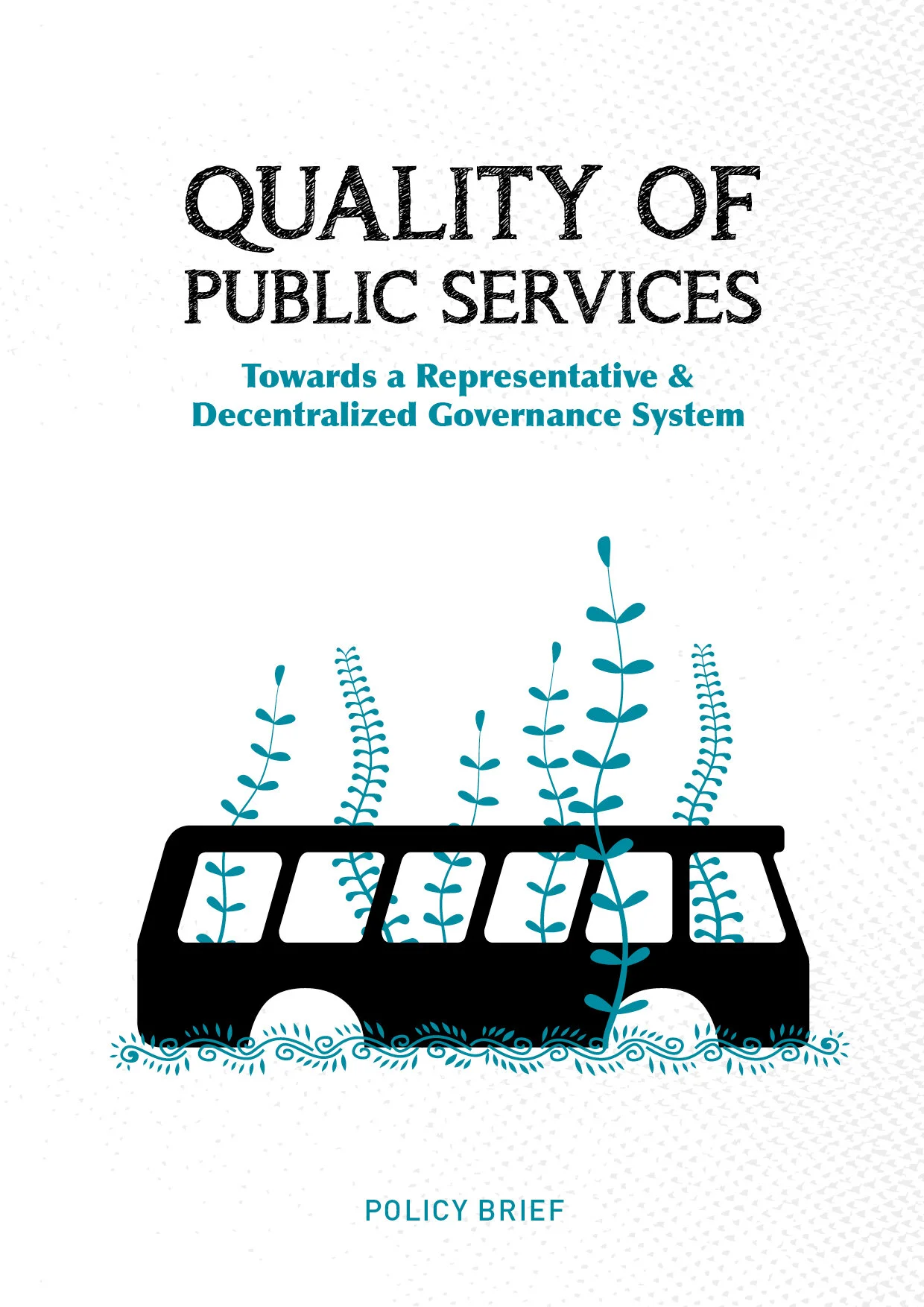Quality of Public Services: Towards a Representative & Decentralized Governance System
QUALITY OF PUBLIC SERVICES
TOWARDS A REPRESENTATIVE & DECENTRALIZED GOVERNANCE SYSTEM
Access to reliable and affordable public services is a basic citizen right. Currently, public services in Lebanon are of low quality, highly expensive, and inaccessible to all. There are many reasons hindering the Lebanese government from improving public services, namely a highly centralized administration, lack of a clear socio-economic development plan, weak accountability mechanisms, and rampant clientelism aggravated by a sectarian political system. Recent government efforts to enhance public services have been ineffective, leading to an increase in citizen dissatisfaction, popular protests, poverty and emigration rates. The different initiatives undertaken to improve public services since the Ta’if Accord have not achieved their goals, including establishment of the Office of the Minister of State for Administrative Reform (OMSAR), reform of the municipal code, and development of a strategy for information and communication technology (ICT) and e-government mechanisms.
This policy brief aims at providing civil society with an alternative roadmap for improving the quality, accessibility, and efficiency of public services through an administrative decentralization law, an independent municipal fund, and a free and fair local electoral law. The proposed policy aspires to bolster public services through local participation aimed at: Improving administrative performance; Enhancing municipal financial autonomy; Ensuring free and fair local representation. Implementation of this policy requires a long-term process that entails introducing new laws and practices, engaging with Parliament, and supporting government in implementing reforms. Since administrative decentralization is a critical issue for all political parties and other stakeholders, it is important to formulate a clear strategy for influencing the policy-making process and forging broad-based alliances in support of theproposed reforms.

